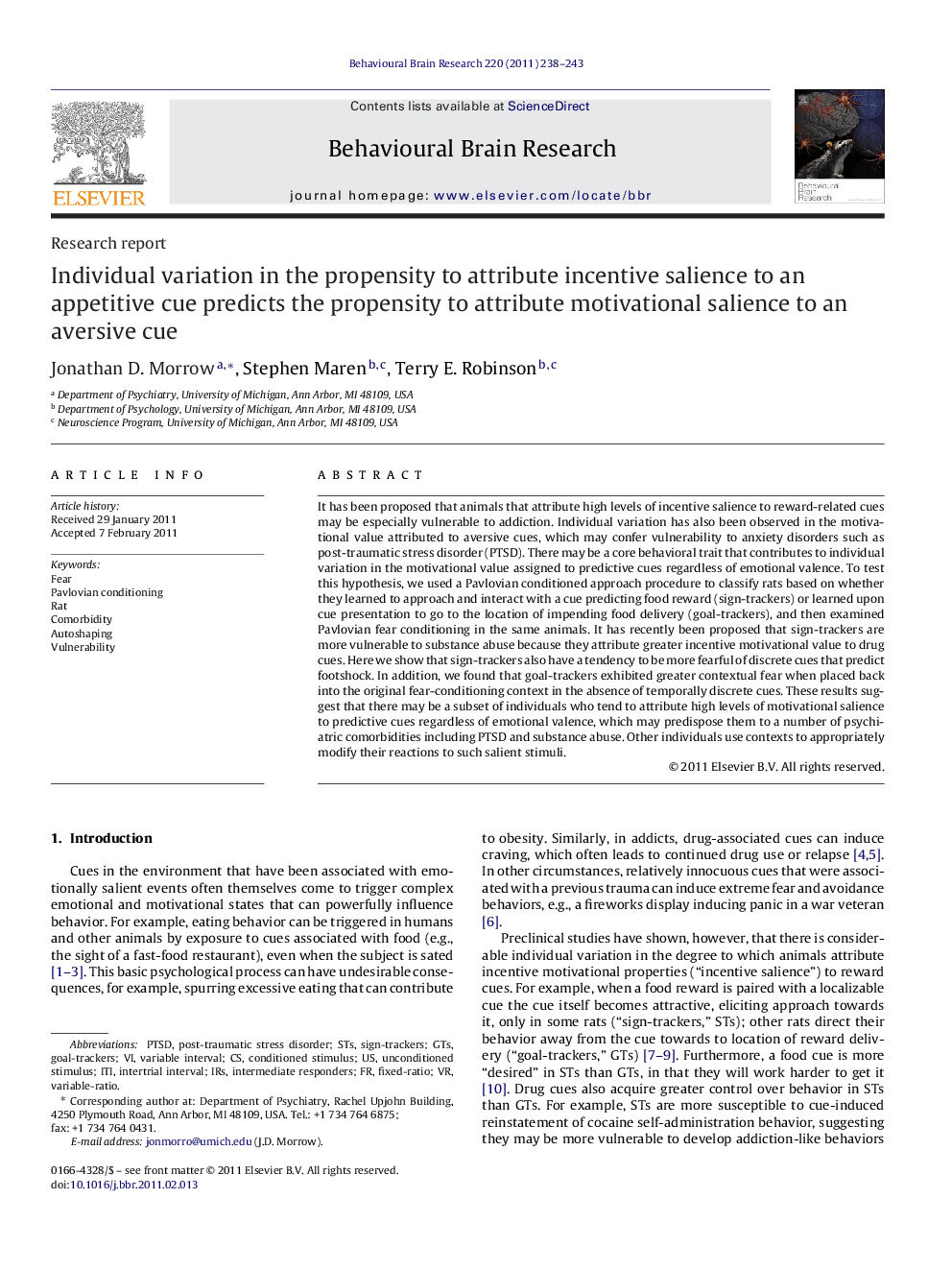| کد مقاله | کد نشریه | سال انتشار | مقاله انگلیسی | نسخه تمام متن |
|---|---|---|---|---|
| 4313794 | 1290009 | 2011 | 6 صفحه PDF | دانلود رایگان |

It has been proposed that animals that attribute high levels of incentive salience to reward-related cues may be especially vulnerable to addiction. Individual variation has also been observed in the motivational value attributed to aversive cues, which may confer vulnerability to anxiety disorders such as post-traumatic stress disorder (PTSD). There may be a core behavioral trait that contributes to individual variation in the motivational value assigned to predictive cues regardless of emotional valence. To test this hypothesis, we used a Pavlovian conditioned approach procedure to classify rats based on whether they learned to approach and interact with a cue predicting food reward (sign-trackers) or learned upon cue presentation to go to the location of impending food delivery (goal-trackers), and then examined Pavlovian fear conditioning in the same animals. It has recently been proposed that sign-trackers are more vulnerable to substance abuse because they attribute greater incentive motivational value to drug cues. Here we show that sign-trackers also have a tendency to be more fearful of discrete cues that predict footshock. In addition, we found that goal-trackers exhibited greater contextual fear when placed back into the original fear-conditioning context in the absence of temporally discrete cues. These results suggest that there may be a subset of individuals who tend to attribute high levels of motivational salience to predictive cues regardless of emotional valence, which may predispose them to a number of psychiatric comorbidities including PTSD and substance abuse. Other individuals use contexts to appropriately modify their reactions to such salient stimuli.
Journal: Behavioural Brain Research - Volume 220, Issue 1, 20 June 2011, Pages 238–243